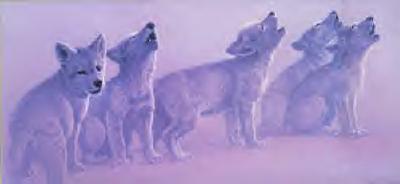|
|
Natives to Get Major Say in Determining Endangered Species, Says Minister "No people are as concerned about the disappearance of species as aboriginal people,"
Anderson said in Iqaluit, where he is attending a meeting of Canadian wildlife and environment ministers. Anderson said an aboriginal representative will have a seat on the scientific committee
that determines whether a species is at risk, said Anderson. "This is the first time we have acknowledged the knowledge of generations of aboriginal
people who have lived on the land as part of the process of determining the species at risk and what should be
done as a recovery plan." At issue is legislation introduced in April to protect endangered species. The bill sets fines up to $1 million for companies and $250,000 for individuals for
deliberately killing an animal considered an endangered species or destroying its habitat. Jail terms up to five years could also be imposed. But environmentalists note that politicians, not scientists, would have the final say
on which species are defined as endangered. A scientific panel would draw up an annual list but the federal cabinet would ratify
the choices. Matthew Coon Come of the Assembly of First Nations welcomed Anderson's announcement,
saying that hunting prohibitions could have direct effects on the ability of some aboriginals to make a living. "It seems like every time there is a list prepared, that First Nations are the
first ones to be affected." Coon Come wanted guaranteed harvest levels to be part of establishing any list of endangered
species. "We can establish some guaranteed harvest levels so we can continue our community
and ceremonial activities," he said. He said aboriginal and treaty rights should allow natives some level of hunt even in
parks or protected areas. Jose Kusugak of the Inuit Tapirisat of Canada said that traditional knowledge and science
are both based on years of observation and trial and error. "(Traditional knowledge) is not a foreign thing. It is not to be looked at as
an enemy, but as a friend." Environmental groups - who oppose Anderson's legislation - generally welcomed the inclusion
of aboriginal knowledge. "There is clearly aboriginal knowledge and traditional knowledge that is more
valuable than what western science can give," said Elizabeth May of the Sierra Club. "I'd rather trust endangered species with Matthew Coon Come than Jean Chretien
any day," she said. John Laird of the World Wildlife Fund said aboriginal hunters are often right where
government scientists are wrong. He cited the example of one village in Nunavut that tried to for 20 years to convince
the Department of Fisheries and Oceans that there are three separate populations of beluga whales in their area. "Only after 20 years did they acknowledge what the community had been saying,"
Laird said. "(Traditional knowledge) is an essential element of getting an understanding of
species at risk." Both Laird and May warned of the possibility of First Nations downplaying risks to
species that have commercial value - especially in southern Canada, said Laird. "When you have access to your market on your doorstep, there is a greater danger
of abuses occurring," he said. But May said overuse by natives is the least of an endangered species' problems. "There's always potential for conflict of interest, but you wouldn't want to overstate
that for the First Nations," she said. Canadian Endangered
Species Word Search Animals of the Arctic Nexus Endangered Species
Lesson Plans
 IQALUIT,
Nunavut -Aboriginal groups will get a voice in deciding which endangered species get protection in legislation
now being drafted, federal Environment Minister David Anderson promised Tuesday.
IQALUIT,
Nunavut -Aboriginal groups will get a voice in deciding which endangered species get protection in legislation
now being drafted, federal Environment Minister David Anderson promised Tuesday.Anderson
also promised that the species at risk legislation will conform to all treaty rights and land claims.
http://www.animalink.ab.ca/FunStuff/SeekAWord3/funstuff1o.htm
http://tqjunior.thinkquest.org/3500/
http://www.sasked.gov.sk.ca/docs/nexus/nex_endspeci.html
![]()
|
|
| Canku Ota is a free Newsletter celebrating Native America, its traditions and accomplishments . We do not provide subscriber or visitor names to anyone. Some articles presented in Canku Ota may contain copyright material. We have received appropriate permissions for republishing any articles. Material appearing here is distributed without profit or monetary gain to those who have expressed an interest. This is in accordance with Title 17 U.S.C. section 107. |
|
Canku Ota is a copyright of Vicki Lockard and Paul Barry. |
|